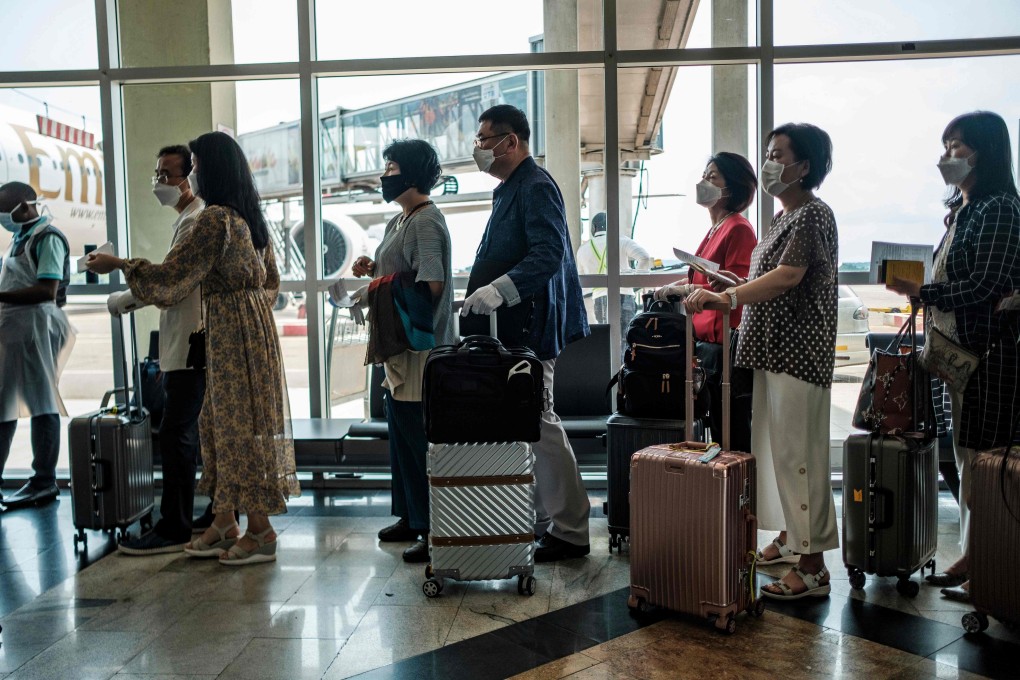Advertisement
Opinion | Coronavirus: are travel bans an effective way to curb Covid-19’s spread?
- Politicising an outbreak is irresponsible. Viruses have no passports and those who want to travel will find a way around travel restrictions
- In today’s borderless word, we must find new ways to collaborate globally – our entire existence as a species depends upon it
Reading Time:4 minutes
Why you can trust SCMP

The Covid-19 illness is now in more than 100 countries worldwide, and the number of infections and deaths will continue to spike before this outbreak gets better. This is a species-level war between Homo sapiens and coronavirus, not between countries or individuals. Yet, the nationalist instincts of governments and societies are increasingly expressed through travel bans and xenophobic rhetoric, worsened by a social media “infodemic”.
Advertisement
This is normal because outbreaks are political, social and psychological phenomena as much as they are scientific, medical and epidemiological. Successfully tackling them depends on scientists and politicians having equal stature, but the current crisis has seen politics overriding science in decisions surrounding travel restrictions.
Indeed, politicians have used this outbreak as a foreign policy tool – see Cambodia’s refusal to repatriate its citizens from Wuhan in a show of solidarity with China; an excuse to propagate inflammatory or unhelpful zero-sum rhetoric, as with United States Commerce Secretary Wilbur Ross’ comment that the virus “will help accelerate the return of jobs to North America”; or in the case of the six countries who refused docking rights to the Westerdam cruise ship over fears of contagion, a pretext for succumbing to mob mentality.
More than 80 countries or jurisdictions are currently imposing some form of travel restrictions on China or its citizens, most of which have been decreed by politicians. For travellers from South Korea, the country with the second most cases, that number is even higher, with 106 countries now enforcing entry restrictions or quarantine procedures, its foreign ministry said on Monday.
Similar bans are also being imposed as cases surge elsewhere, with Malaysia, Singapore and Indonesia all denying entry to anyone who has recently travelled in Italy’s hardest-hit northern regions, and India effectively banning all Italians regardless of their country of origin.
Advertisement

Advertisement
